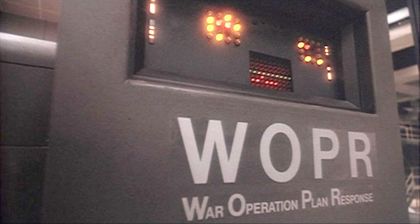America Needs a “Dead Hand”
September 4th, 2019Related: “There’s no way a human can keep up, so you’ve got to delegate to machines.”
Via: War on the Rocks:
America’s nuclear command, control, and communications (NC3) system comprises many component systems that were designed and fielded during the Cold War — a period when nuclear missiles were set to launch from deep within Soviet territory, giving the United States sufficient time to react. That era is over. Today, Russian and Chinese nuclear modernization is rapidly compressing the time U.S. leaders will have to detect a nuclear launch, decide on a course of action, and direct a response.
Technologies such as hypersonic weapons, stealthy nuclear-armed cruise missiles, and weaponized artificial intelligence mean America’s legacy NC3 system may be too slow for the president to make a considered decision and transmit orders. The challenges of attack-time compression present a destabilizing risk to America’s deterrence strategy. Any potential for failure in the detection or assessment of an attack, or any reduction of decision and response time, is inherently dangerous and destabilizing.
If the ultimate purpose of the NC3 system is to ensure America’s senior leadership has the information and time needed to command and control nuclear forces, then the penultimate purpose of a reliable NC3 system is to reinforce the desired deterrent effect. To maintain the deterrent value of America’s strategic forces, the United States may need to develop something that might seem unfathomable — an automated strategic response system based on artificial intelligence.
Admittedly, such a suggestion will generate comparisons to Dr. Strangelove’s doomsday machine, War Games’ War Operation Plan Response, and the Terminator’s Skynet, but the prophetic imagery of these science fiction films is quickly becoming reality. A rational look at the NC3 modernization problem finds that it is compounded by technical threats that are likely to impact strategic forces. Time compression has placed America’s senior leadership in a situation where the existing NC3 system may not act rapidly enough. Thus, it may be necessary to develop a system based on artificial intelligence, with predetermined response decisions, that detects, decides, and directs strategic forces with such speed that the attack-time compression challenge does not place the United States in an impossible position.

